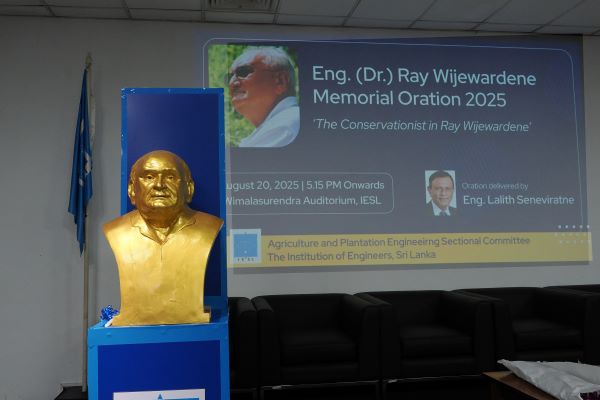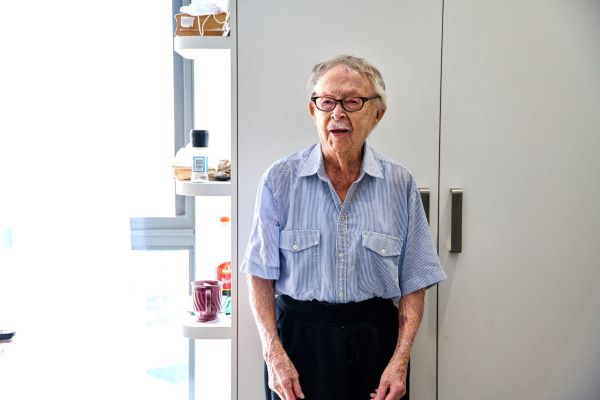A Drumbeat For The Geriatric Elderly in Sri Lanka-by KKS Perera
KKS Perera, in Daily News, 16 January 2025, where the chosen title is “Aging With Dignity” … with highlighting imposed by The Editor, Thuppahi
Source:Thuppahis
It was Hubert H. Humphrey who said, “The moral test of a State is how it treats the elderly; those who are in the dimness of life; the sick, the deprived and the handicapped.”
My octogenarian neighbour says, ‘Many classmates, friends and relatives of mine departed before reaching 80, missing the independence and free will aging brings. Growing older is a privilege, offering unique perspectives on life’s fleeting nature. I vividly recall significant moments from school and early career, yet details from just yesterday or why I walked into a room often slip away. The purpose vanishes, leaving me momentarily blank. It’s not a loss, though—retracing my steps often jogs my memory. However, names present a tougher challenge. Faces come easily, but names, once familiar, now elude me—a curious irony of aging and memory’s fragility.’
The writer vividly remembers significant moments from his schooldays and early career, but details of recent events, like why I walked into a room, often escape him. It’s a quirk of aging—momentary lapses that rarely return despite attempts to recall.
Senior citizens, particularly those over 75 years who fall into the non-pensioner category with monthly incomes of less than Rs 100,000, are urging the Government to reinstate the 15% interest rate for senior citizens as a priority, [withdrawn by the last Government] on fixed deposits. This change would incur less than 20% of the costs associated with the previous programme, where all citizens over 60 were eligible for the benefit. By focusing initially on those with limited financial resources, this would ensure targeted support for the most vulnerable members of the elderly population. Once the economy improves and the fiscal situation stabilises, this facility could then be expanded to include all senior citizens, offering them an opportunity to secure better financial independence in their later years.
Immediate relief
Restoring this benefit would not only provide immediate relief but also demonstrate the Government’s commitment to supporting its aging population, helping them maintain dignity and financial security as they transition into retirement.
Some medical specialists tend to dismiss elderly patients’ concerns as symptoms of aging, a natural process they claim has no cure. This unprofessional and discourteous behaviour undermines the dignity of their patients. Rather than tolerating such attitudes, patients should demand proper treatment and respect. An incident that highlights this issue occurred a few years ago. A leading ophthalmologist mocked an octogenarian, a retired civil servant, using a verse from the Guttila Kavya, a 15th-century satire, to ridicule the patient’s age. The former public servant recounted his experience:
“I consulted a renowned ophthalmologist about my deteriorating eyesight. After examining my eyes, he recited, ‘mata mahalu wayase beriya veena gaayana perase’ (implying one is too old to function effectively), and his assistants chuckled. Though embarrassed, I explained I spend four to five hours daily at the computer. He expressed disbelief at my capability, offered no treatment, and told me to see an optician for reading glasses. As I left, he repeated the verse, causing more laughter. I wanted to ask, ‘If so, of what use is your medicine?’ but refrained out of courtesy.”
This incident reflects a glaring lack of empathy and professionalism. Mocking an elderly patient, especially one seeking help, is a betrayal of the respect and compassion expected in the medical profession. Such behavior tarnishes the image of a noble field, reminding us that true medical care requires not just expertise but also humanity and respect for all.
Diseases of Old Age
Ignatz Nascher, father of geriatrics, addressed such challenges over a century ago. As a medical student, he witnessed a gravely ill septuagenarian dismissed by a lecturer as “just old age,” unworthy of treatment. Outraged, Nascher coined the term “geriatrics” and, in 1914, published “Geriatrics: The Diseases of Old Age and Their Treatment.” He defined it as ‘a branch of medicine dealing with the diseases, debilities, and care of aged persons,’ challenging the era’s neglect of the elderly. His work remains a reminder to treat aging with dignity and care. Globally, aging populations are a growing concern. Japan, with the world’s oldest demographic, and countries like China, Russia, and Thailand face challenges, while China’s one-child policy has exacerbated age imbalance. In contrast, India’s youthful population positions it as an emerging economic powerhouse. These demographic shifts highlight the need for elder care and the recognition of their societal contributions.
Sri Lanka is one of the fastest-aging countries, with the elderly population rising from 12.6% to 17.7% by 2025, and still increasing. This rapid demographic shift, faster than in many other nations, poses economic challenges. A shrinking working-age population will strain industries, reduce productivity, and slow economic growth.
Healthcare is critical for the elderly, yet Sri Lanka struggles to meet their needs. The same medical personnel who care for the general population also handle elder care, but geriatrics—a medical specialty focused on aging—is largely unavailable. With very few trained geriatricians, older adults lack access to specialized care. As the aging population grows, Sri Lanka must address this gap. Expanding elder-focused healthcare and policies is vital to ensuring dignity and support for those who’ve contributed to society.
Free healthcare has extended the lives of Sri Lanka’s elderly, but they face significant challenges with the state health service. Issues include long wait times for medicine and consultations, shortages of drugs and laboratory facilities, limited access to specialized treatments, and the lack of an appointment system. There’s a cultural tendency to accept elderly illness as inevitable, affecting how they’re treated. While this mindset isn’t meant to offend, it reflects attitudes toward aging. Elderly care often needs to come to them, given their frailty and inability to access care.
Essential healthcare
Educating younger generations on elderly needs is vital, but families face pressures managing their own lives. Alongside essential healthcare, there’s a critical need for elder-specific facilities: home care, sheltered housing, nursing homes, and hospices. These are essential for dignified aging in Sri Lanka.
The Government must address the financial insecurity faced by the elderly, especially those without fixed monthly incomes such as pensions, interest on deposits, and dividends from shares. Conducting a comprehensive survey of such cases and providing a living pension is essential. Embracing a welfare state concept would be most appropriate in this context.
Old age often brings feelings of lethargy and alienation. The loss of loved ones and peers, along with diminished status and role, significantly impact the elderly. Acknowledging this reality, we must prepare for a growing elderly population with increased care costs. Implementing effective preventive policies to maintain their physical well-being is crucial. Additionally, integrating them into society through meaningful roles that leverage their skills and experiences can enhance their productivity and overall well-being.
“Everything about him was old except his eyes and they were the same color as the sea and were cheerful and undefeated”: Earnest Hemmingway—‘Old Man and The Sea’
&&&&&&&&&
The author is now retired and resides in the Kalutara-Panadura locality. He can be contacted directly at kksperera1@gmail.com






















